Published on 12.10.2023
CLEPA DATA DIGEST #10 – Suppliers gain ground on their way to climate neutrality

Edition #10 – DATA DIGEST is CLEPA’s monthly publication shedding light on the health and resilience of the European automotive supply industry through latest facts and figures
Suppliers gain ground on their way to climate neutrality
Latest figures show a strong sustainability commitment as the auto industry adapts to green production
Sustainability strategies in action – European automotive suppliers are actively pursuing green and circular strategies throughout the entire value chain, defining ambitious targets for an increasingly sustainable automotive supply industry.
Vehicle production increased in the past two years, following the COVID-19 pandemic and the ensuing supply chain disruptions; nevertheless, suppliers have managed to reduce CO2 emissions significantly by increasing the use of renewable energy. However, production increase, has led to an uptick in water usage and waste generation. Despite this ramp up in production, suppliers are finding innovative approaches to drive efficiency gains in waste recycling and recovery.
Methodology note: for this edition of the Data Digest, CLEPA analysed six key performance indicators (KPIs) from the non-financial reports of 27 companies representing the entire portfolio of automotive components. 2020 is taken as a base year to avoid that the fall in production between 2019 and the years following 2020 (COVID and supply chain disruptions) distorts the analysis.
These KPIs are often defined based on materiality assessments, and CLEPA has tracked the data as consistently as possible. We expect consistency to further improve with the application of the Corporate Sustainability Reporting Directive, beginning in 2024 and 2025 for larger organisations and unlisted companies, respectively. The six KPIs we assessed are Scope 1&2 emissions, energy use, renewable energy use, water consumption, waste generation and recyclable waste generation.
What you will find in this edition
1 – CO2 reduction: More than 800,000 metric tons of CO2 saved in 2022 compared to 2020
2 – Renewable energy: Share of renewable energy peaks at 41% in 2022
3 – Water use: Increased vehicle production puts a spotlight on water consumption
4 – Waste management: Up to 93% of production waste was recycled or recovered in 2022
The highly diverse automotive supply industry has shown a consistent commitment to drive the transition towards green and sustainable production. The EU-wide objective of climate action to reach carbon neutrality in 25 years is fostering a great effort in support of decarbonisation, making mobility green from the very outset.

Umberto Fassero
CLEPA’s Sustainability and Market Affairs Manager
CLEPA’s CO2 tracker shows a substantial reduction of 856.000 metric tons, equivalent to the emissions of a mid-sized French city like Grenoble. This represents a significant improvement, with emissions reductions shifting from -0.2% between 2020 and 2021, to a noteworthy -4.5% between 2021 and 2022, setting a positive trajectory for the future.
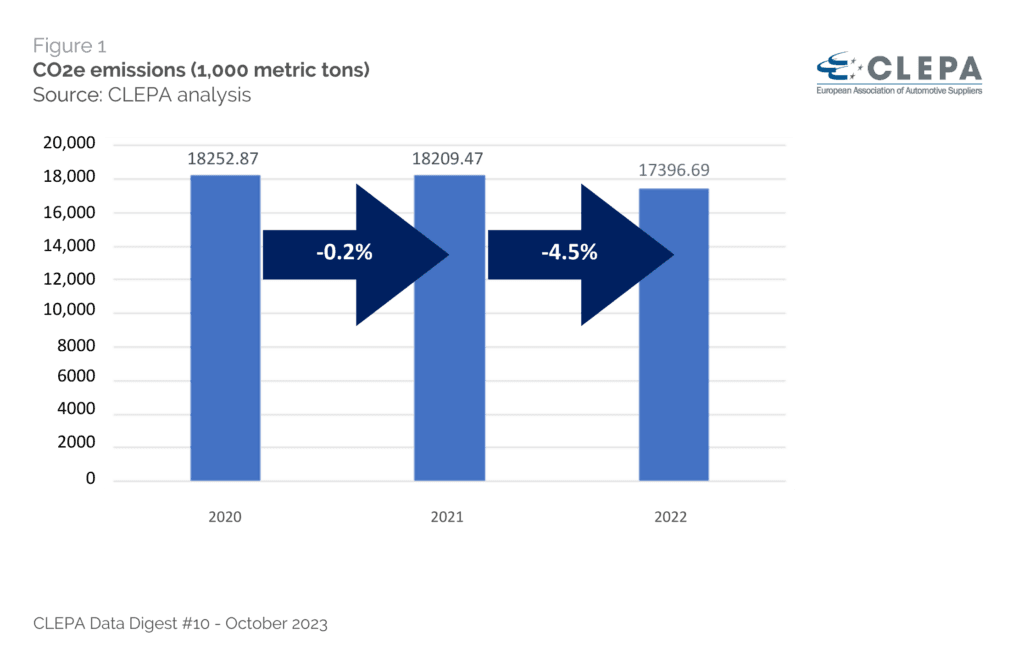
Rapid adoption of renewable energy sources has played a pivotal role in decarbonising production. Renewables accounted for just 13% of the overall energy use in 2020 but surged by 128% between the base year and 2021, followed by a further 64% increase between 2021 and 2022. Last year, the share of renewable energy increased to 41% of automotive suppliers’ total energy consumption.
To sustain and increase this trend, support for a stable and timely supply of green electricity is crucial. Additionally, sectors heavily reliant on gas, such as iron and steel casting and glass manufacturing, will require hydrogen for full decarbonisation. Here, the switch from gas to renewables with no disruption in the transition will only be possible if green hydrogen is widely available and affordable.
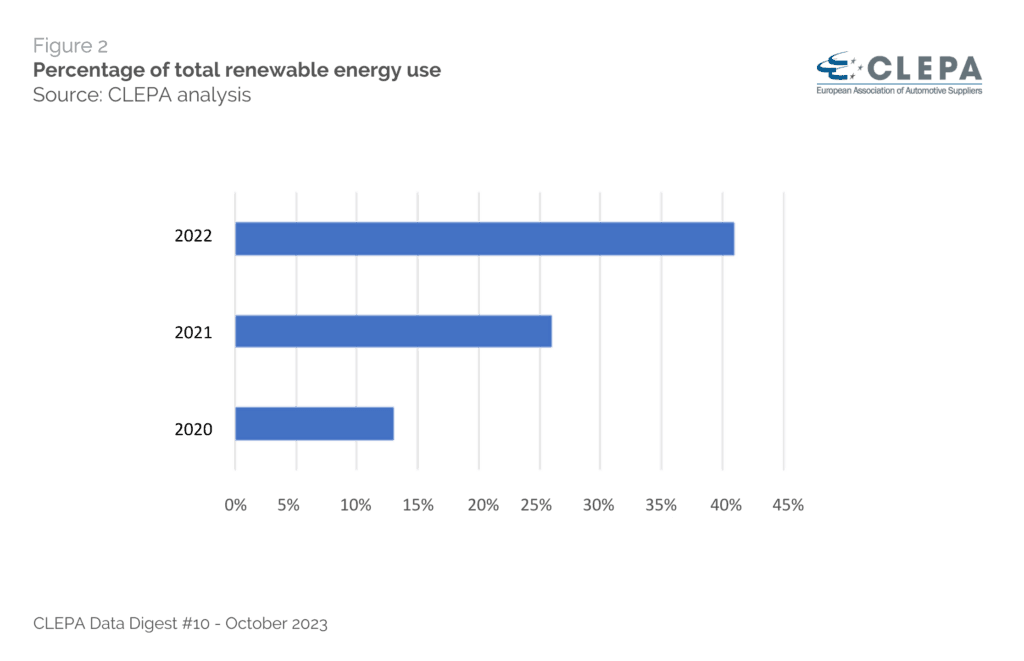
Water usage in suppliers’ production increased by 10% between 2020 and 2022, slightly outpacing the growth in vehicle production over the same period (from 78 million vehicles in 2020 to 85 million vehicles in 2022, according to OICA).
Companies are developing strategies to minimise resource waste and to mitigate climate change. Future goals include decoupling water consumption from production levels.
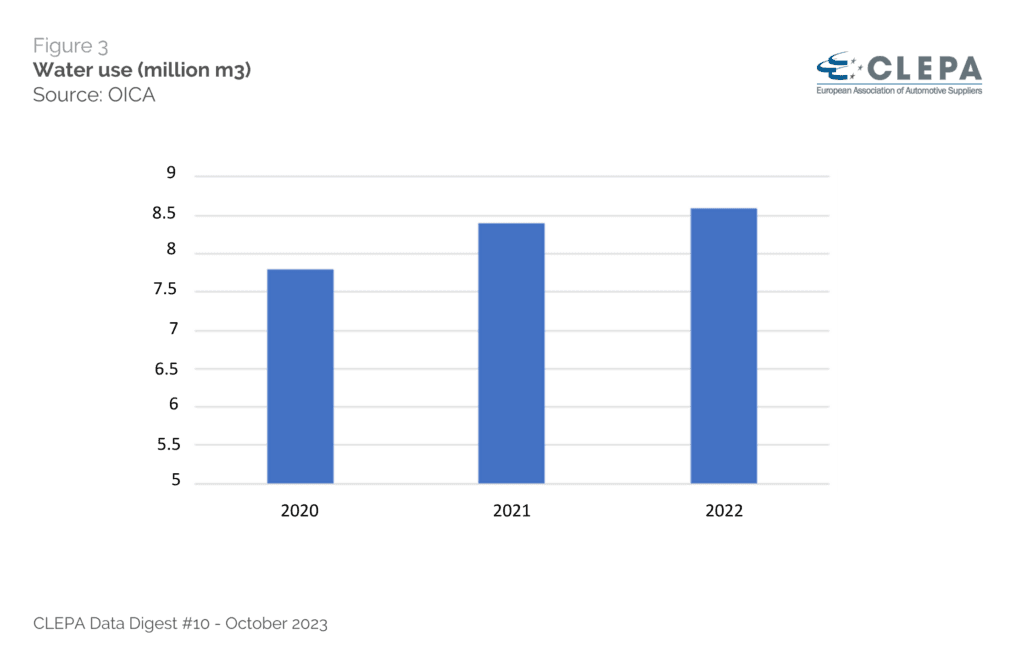
Automotive suppliers are delivering a wide range of technologies set to provide a more sustainable driving experience for customers in Europe and worldwide. Our figures demonstrate that the effort goes beyond compliance to a full commitment on delivering innovative products and a sustainable supply chain.

Benjamin Krieger
CLEPA’s Secretary General
Similar to water consumption, waste generation grew by approximately 9% over the past two years, but suppliers reported a slight increase in the recycling and recovery of waste, rising from 92% to 93% in 2022. Recycling rates have traditionally been high in the automotive supply industry, with a focus on reusing production waste. Initiatives now extend to remanufacturing components and producing new components from recovered waste, enhancing sustainability across the industry.
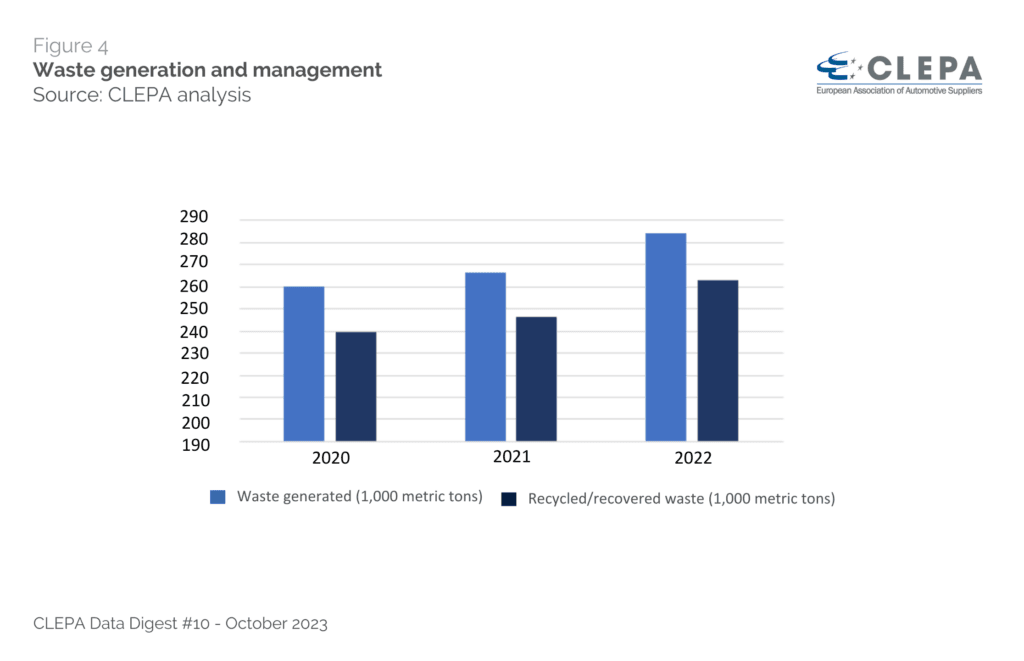
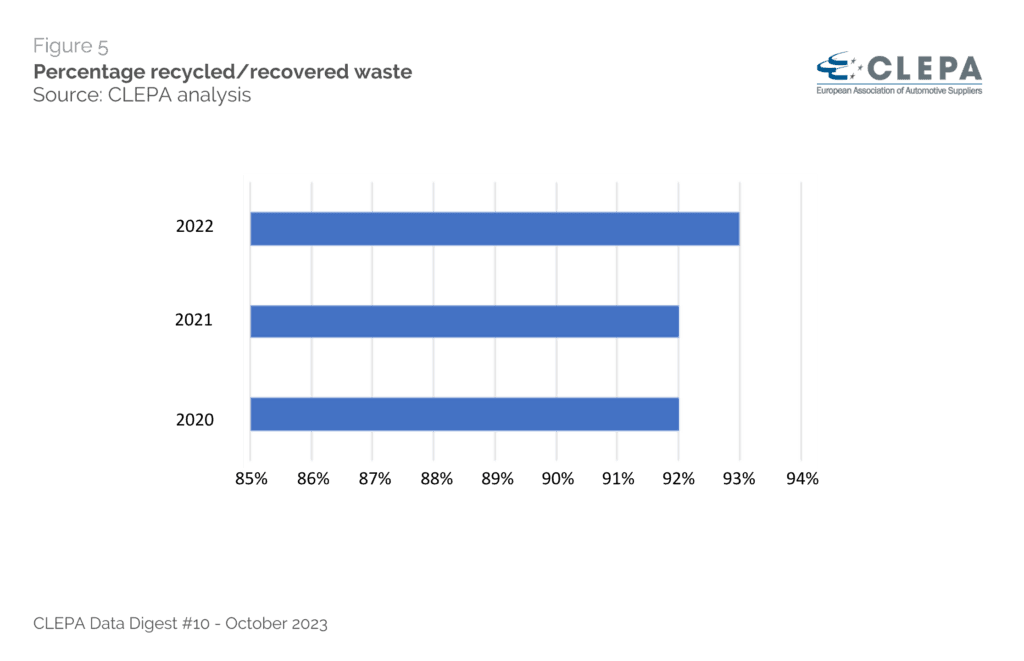
Are you interested in knowing more?
Contact CLEPA Communications Team at communications@clepa.be
Subscribe now to receive CLEPA’s latest communication
Attachments
In: CLEPA News



